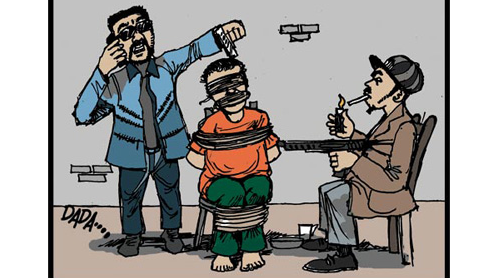One of the major security trends in the month of January was kidnapping. There is a high potential for this to increase over the coming months due to current economic situations. It is important to learn a bit more about this threat to enable us understand and be prepared. Of course we do not hope this happens to you, however it’s best to be prepared.
People who get involved in kidnapping might fall into any of these 3 categories:
- Political activist: In this case, the kidnap is done towards achieving a cause. E.g. getting a political representative to resign or make a decision in a certain direction. They usually operate in teams and have accomplices outside the kidnap zone.
- Criminal/Extortionist: The kidnapper here is just in it to get a reward. At a given price, he/she is willing to release the abducted person. He/she is not planning to die or get caught. The kidnap is just a means to make quick bucks and most times disagreement because of greed is their undoing. This is more common in this part of the world, Kidnap for ransom.
- Mentally disturbed: This kidnapper is dangerous because of unpredictability associated with the mental condition. Kidnap here could be for a diverse range of reasons love, delusion, power etc.
There are diverse methods of kidnapping unsuspecting individuals but abducted individuals go through the same phases. Have you ever wondered what happens to the abducted person and his/her family or loved ones when a kidnap has occurred? Most times when we hear the news, we feel sorry a bit and then move on. But there are things we need to know to enable us be more compassionate and sensitive towards abducted people and their families.
After the realisation that a kidnap has indeed occurred…
Abducted persons go through four phases depending on the length of abduction:
Alarm Phase
There is a sense of disbelief and denial. You cannot believe that this has happened to you. You have heard stories, you have seen movies but you just never thought it could happen to you. This leads to a feeling of powerlessness even as you begin to contemplate escape options. There is a tendency to want to make rash decisions but you shouldn’t underestimate their intelligence. Be alert but stay calm and passive. Reassure them that you are willing to cooperate. This is difficult but it has to be done.
Isolation Phase
As minutes become hours, days, you lose awareness of time and experience feelings of isolation. You wonder if anyone has realised your situation, you wonder if help would come and you feel helpless. Claustrophobia sets in. No matter what, you need to try to keep your hopes up. Trust that your situation has been noticed and measures are being put in place to save you.

Accommodation Phase
Here you are eventually beginning to come to terms with your kidnapper. You might even be on talking terms with them and getting to understand their motives. You might have feelings of appreciation to the kidnappers because your life is being spared. The kidnappers might become hostile most especially if their terms are not being met as quickly as expected. In some situations, feelings of appreciation grow to feelings of affection between the kidnapper and the hostage because of dependence for life and provision. This is referred to as Stockholm syndrome. Its origin is from a hostage situation in Stockholm in 1973 where a female hostage got romantically attached to one of the robbers.
Resolution Phase
At this stage, some sort of resolution has happened. It’s either the abducted persons have been released or death has occurred. We always hope for a peaceful resolution in kidnap situations. However, things could go awry at this phase.
While undergoing these phases, what can you do?
Be alert
Take note of your environment: is it a bushy terrain? Is there a river close by? Is the area too quiet or noisy? Take note of your abductors: what do they look like, complexion, build, facial marks, age, tribe? Look around for a means of escape and valuable clues that will be needed to catch the abductors when you are released. If you are blindfolded, use your other senses to know about you location. Giving yourself mental tasks would help you divert feelings of helplessness.
Be calm and cooperate
Stay calm and reassure your abductors that you are willing to cooperate. Do not make sudden movements because they could be misunderstood. Calmness and cooperation boosts your chances of survival and we need you to survive.
Engage in conversation
This might seem too daring right? But it is important to understand what is motivating your kidnappers as that is a clue to whether you are important to them alive or dead. Build a rapport with them gradually to avoid raising suspicion. Please avoid sensitive conversation topics and do not be abusive to your captors. When your captors speak, really listen to what they are saying.
Be positive
You might be there for long periods and even if it is short, being in captivity always feels much longer. It is therefore paramount to keep your spirits up. Be positive about your situation and have confidence in your release.
What happens to family during the abduction and to the abducted person after the release? How can you keep yourself and loved ones safe this period?
To be continued next week…
Image credit: www.africanspotlight.com




